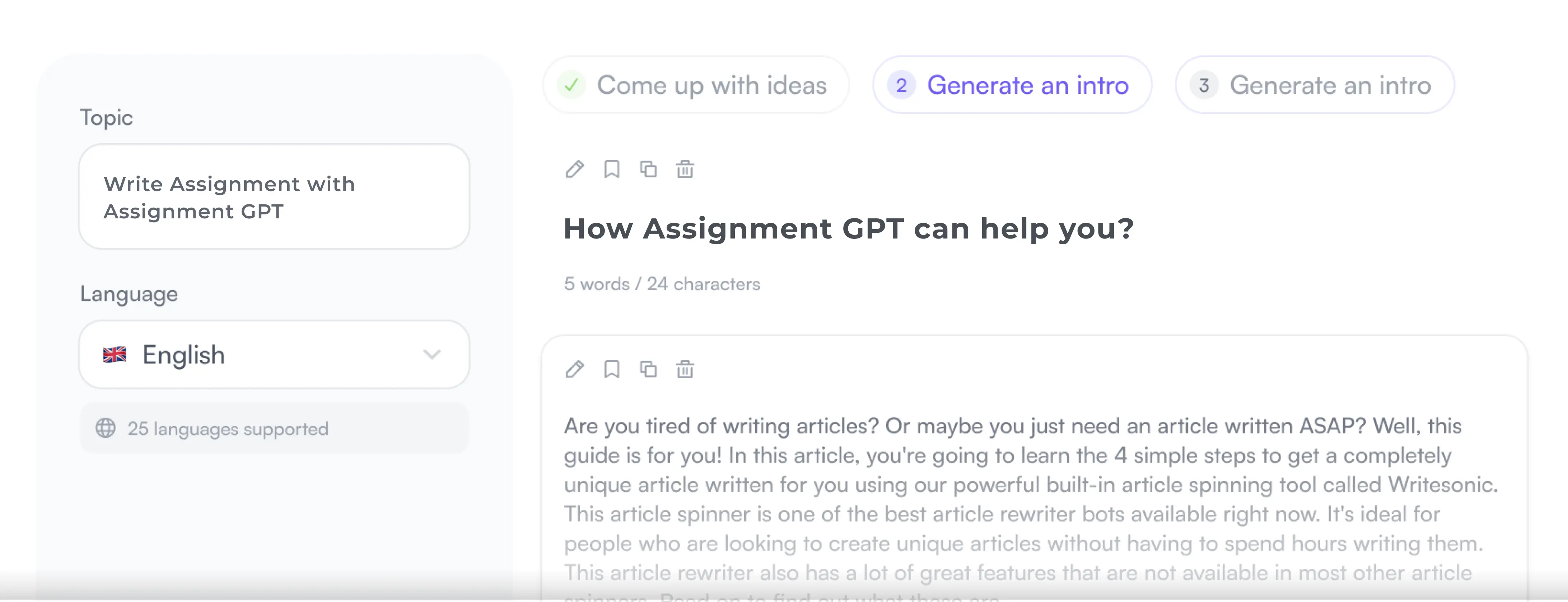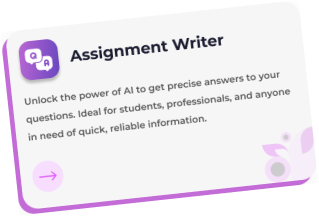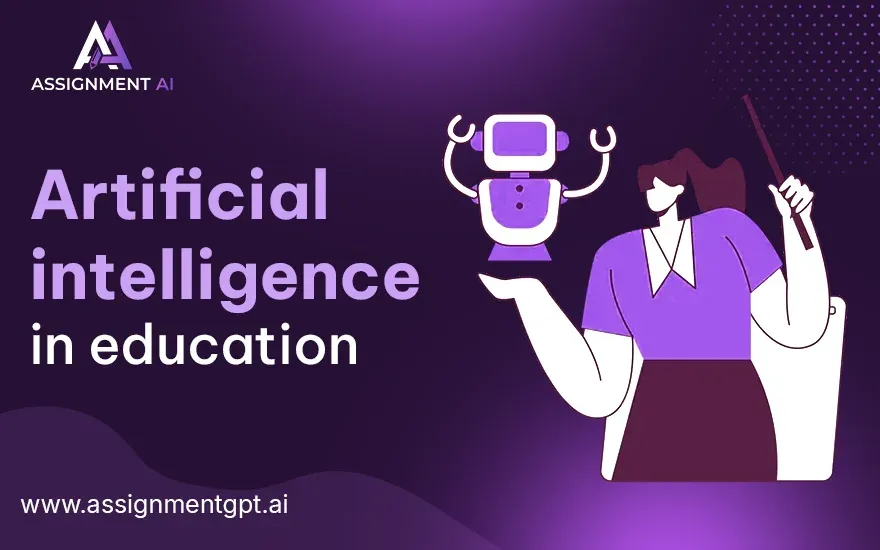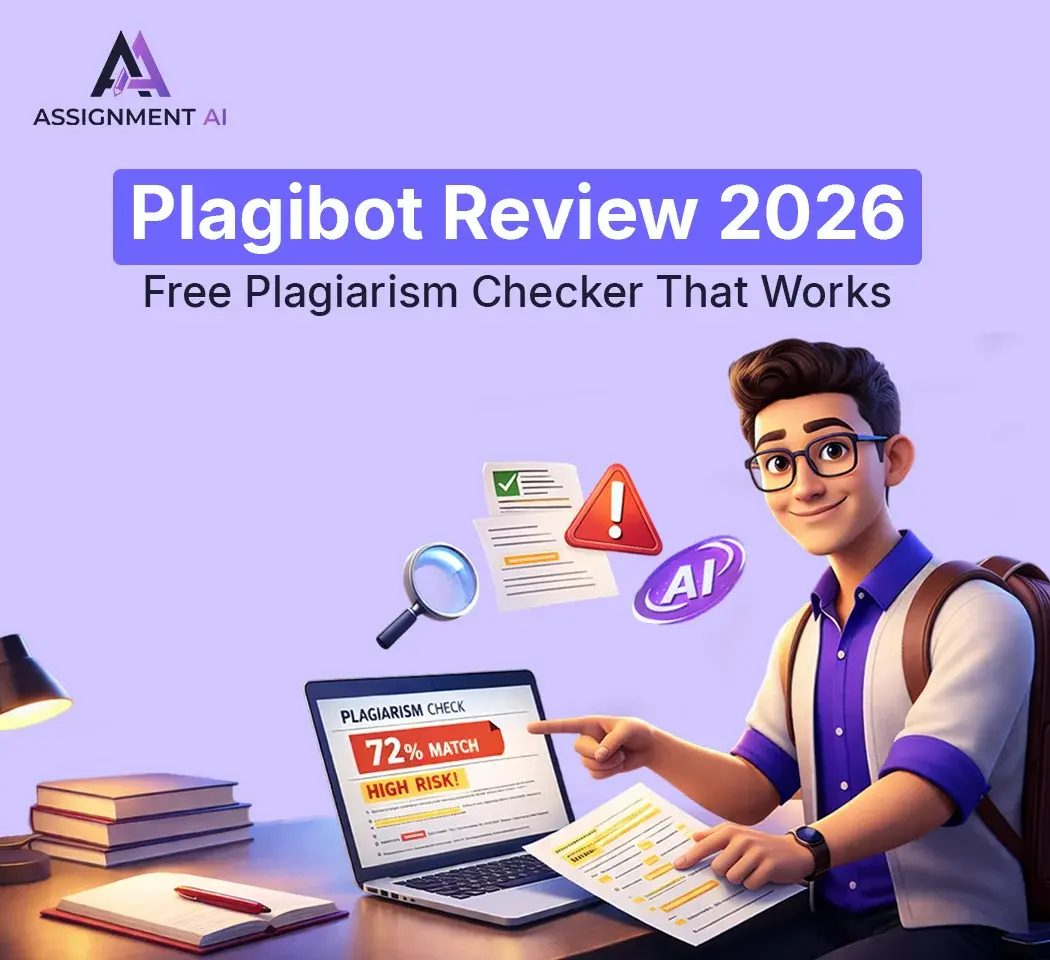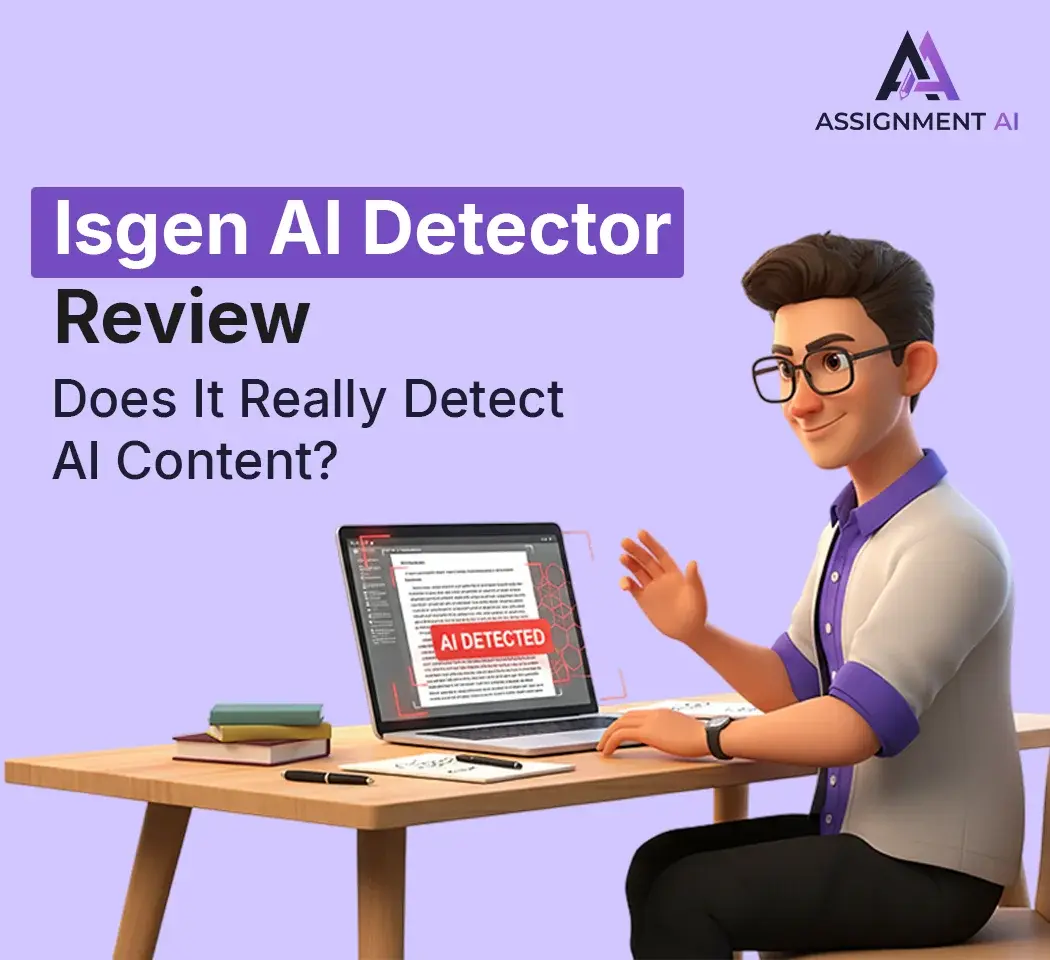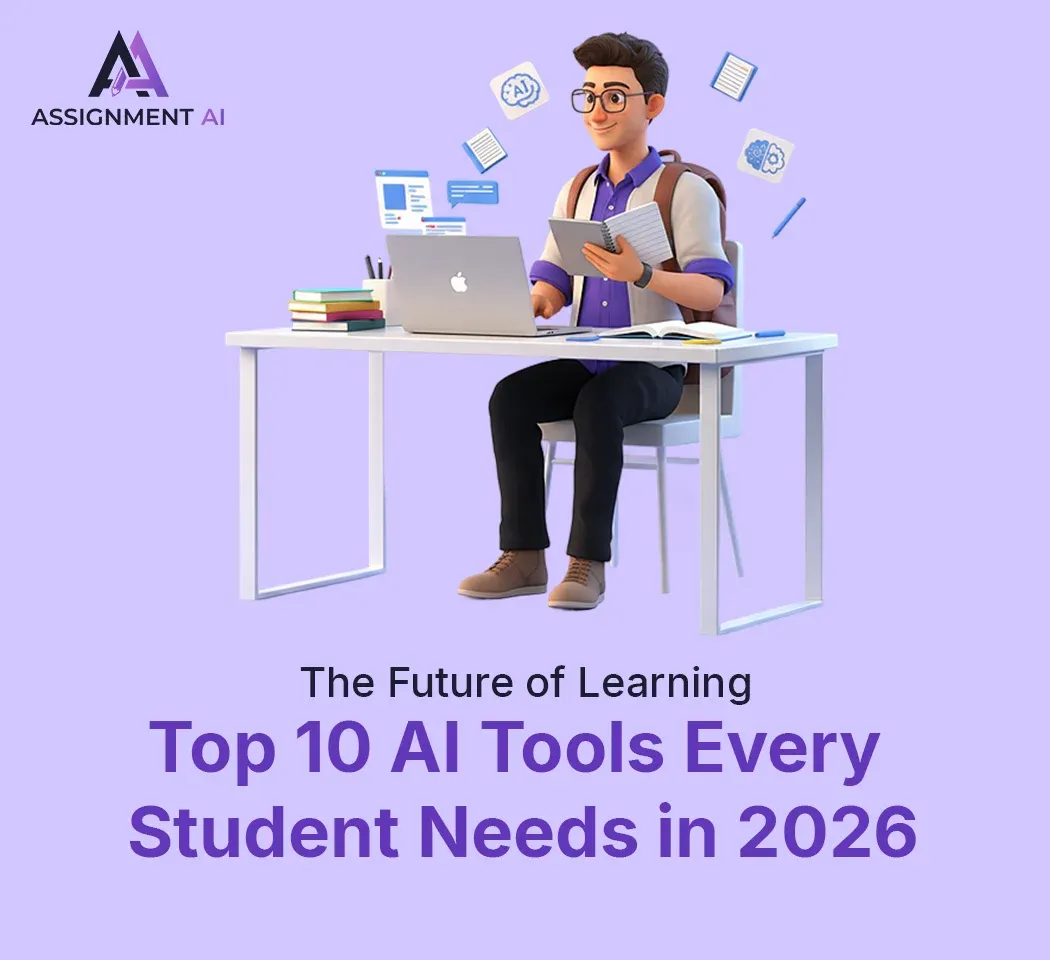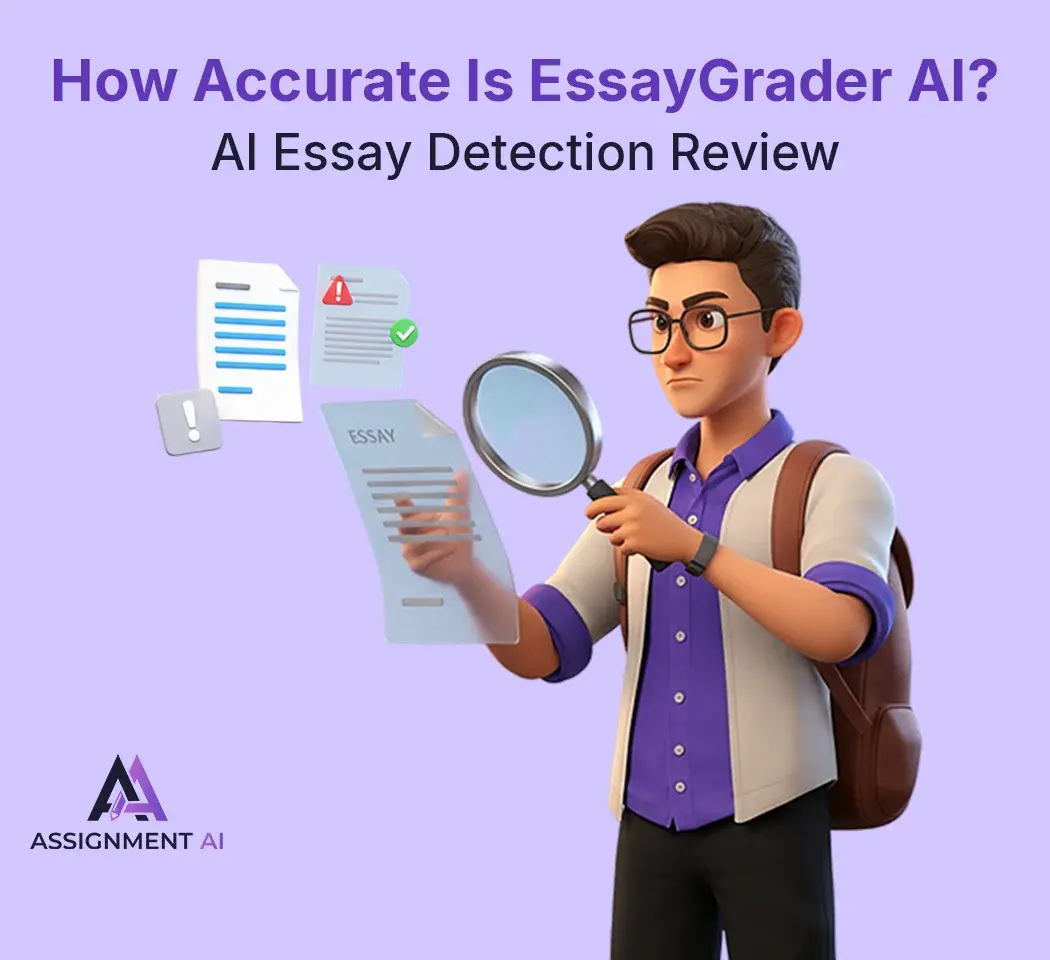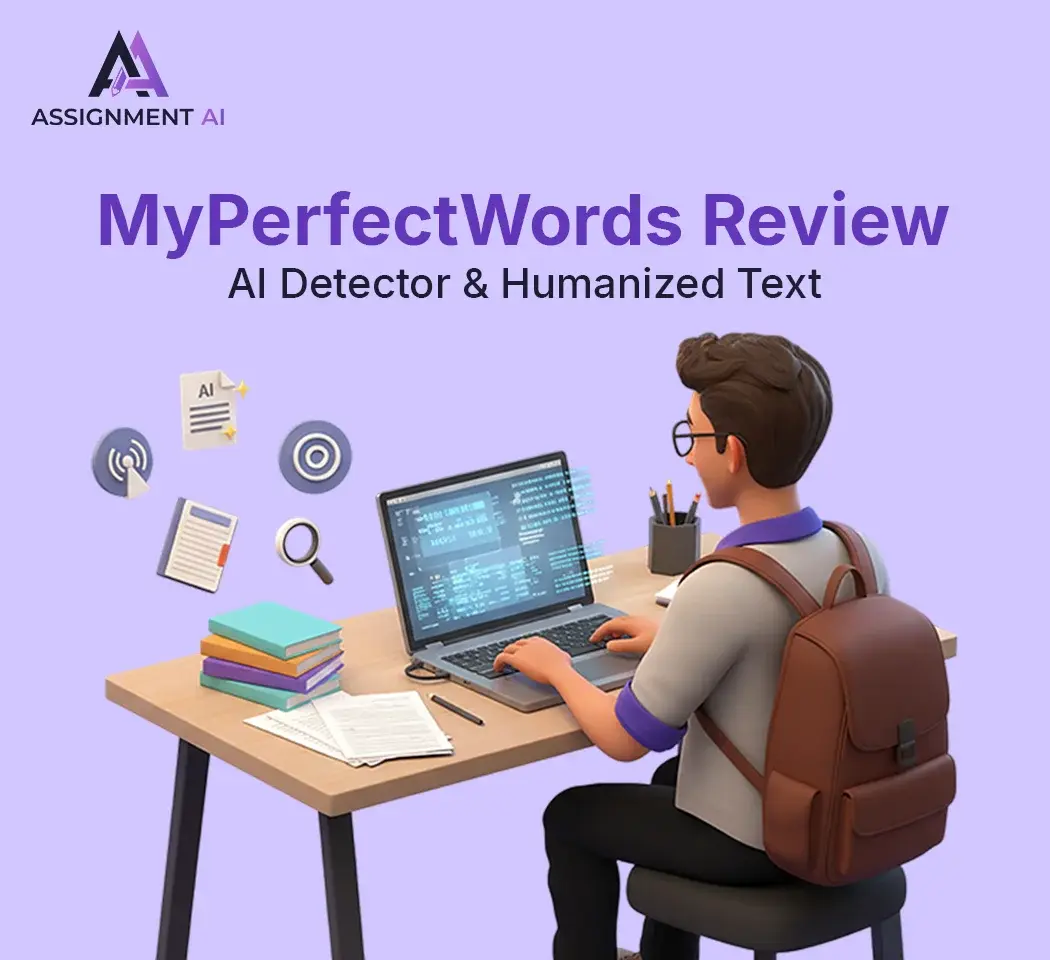AssignmentGPT Blogs
The integration of Artificial Intelligence into education has brought many changes in the way students learn and how institutions function. With the accelerating speed of the change of technology, it is clear that AI in education holds a much higher importance and proposes a wide array of benefits to both instructors and learners. AI is revolutionizing the traditional classroom and creating innovative learning environments that are more adaptive, effective, and engaging. We shall explore the benefits of artificial intelligence in the educational sector as a strategy to transform learning experiences and educational outcomes.
Quick Summary
AI brings a change in education, providing a personal experience, the automation of all administration work, and access for students from all walks of life. Some of the other benefits of AI in education are the creation of high-quality content, increased engagement, and time-saving for teachers and students alike. By introducing AI tools such as AssignmentGPT AI, it has made every bit of learning far more efficient with student-specific learning experiences and quick access to any information that might be needed.
Artificial Intelligence in Education: What is it?
Artificial Intelligence is described as the simulation of human intelligence in machines, particularly that enabled in computers. It is hence defined as the ability of a machine to carry out specific tasks that would require human-like intelligence. It encompasses activities and tasks such as problem-solving, decision-making, and learning. Thus, when applied to education, AI can be used to automatically automate routine tasks, such as grading, to allow for greater personalization and access to learning tools for everyone.
Personalized Learning – AI customizes learning experiences on the individual needs of each learner based on data about different styles, strengths, and weaknesses.
Automated Administrative Tasks – AI helps teachers by automating tasks such as grading, attendance, and scheduling while saving valuable time.
Content Generation – AI speeds up the preparation of teaching materials including quizzes, study guides, and interactive activities.
It increases student engagement through AI-based tools offering virtual tutors, adaptive learning platforms, and AI-based personalized feedback.
It improves accessibility by the provision of text-to-speech, speech-to-text, and other assistive tools through AI technologies available for students with disabilities.
AI offers teachers insights into how the student responds to the curriculum; this makes it possible for teachers to better determine more informed decision-making as they make adjustments.
Also read this artcle : 14 Best AI Productivity Tools for Working Smarter
Advantages Artificial Intelligence in the Education Sector
It offers a wide range of advantages, helping modern learners and educators meet their own needs in education. Improving personalization, automating tasks, and enhancing engagement, AI improves the learning experience radically.
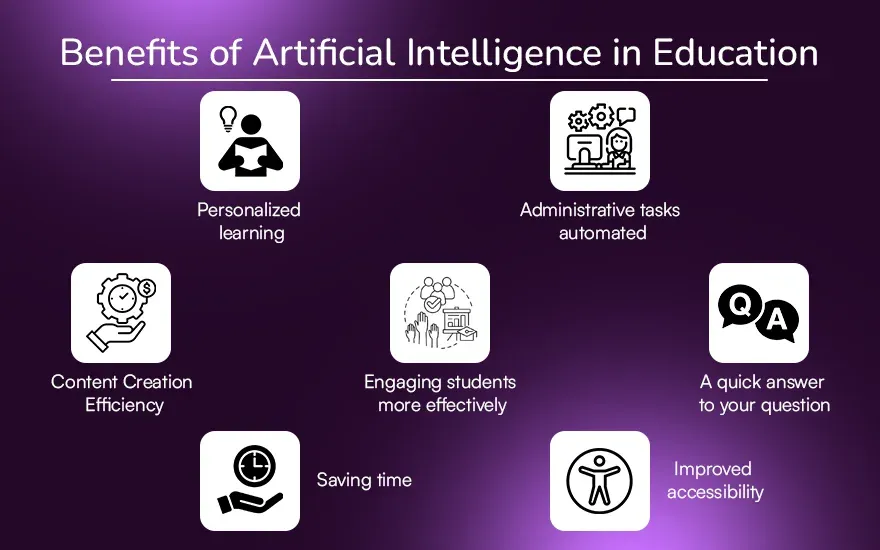
1. Personalized Learning
Perhaps the greatest application of AI in learning is personalized learning content. AI systems may scan individual students' learning habits, challenges, and strengths and tailor content based on those needs. For example, AI-driven platforms will change the speed at which a student learns based on how fast that particular student goes through lessons and materials. Herein lies the fact that no student is left behind and advanced learners are adequately challenged.
Personalized learning allows the students to receive instant feedback through which they can identify where they were wrong and be able to correct it instantly. Adaptive learning style, therefore, ensures mastery and retention of what is being learned; thus, the whole learning process is effective.
2. Administration Solved by Machines
Teachers spend much of their time doing administrative work-such as grading and scheduling and record keeping. AI will automatically be able to start freeing up much of that routine work, so faculty can be the faculty-instructional time with students, not just record keeping. Grading from AI can grade multiple-choice questions, essays, and even very complex assignments with high accuracy and speed.
This automation ensures efficiency and makes the assessment fairer since AI rejects any biases in the grading. Another exciting aspect about AI is that it may facilitate communication with the students and parents by automatically sending updates on progress, homework reminders, and forthcoming events.
3. Efficiency of Content Creation
AI helps revolutionize content creation in education by automatically generating quizzes and study materials. There is no more sitting in an office for hours waiting for a pile of assignments to be written or a curriculum to be designed. The AI tools scan textbooks or online content and generate appropriate questions and exercises based on the material.
This is also true because, through AI, intricate problems can be approached in ways that they may become more understandable through gamification, simulations, and virtual labs; therefore, learners remain oriented.
4. Involve your students more compellingly
The greatest advantage that AI provides for education is its capability to engage students much more holistically. With adaptive learning techniques, AI-driven platforms provide an interactive experience that has better appeal for the engaged student. Virtual tutors and AI-powered chatbots offer instant support that helps assist students when they ask questions.
AI-based learning tools also use multimedia elements like video, online interactive quizzes, and gamification. These elements would make learning fun and therefore less monotonous. As a result, the learning process becomes engaging, enhancing retention and academic performance.
5. A Quick Answer to Your Question
AI tools will address queries from students immediately without having to wait for the next class or office hours. Virtual aids through chatbots or intelligent tutoring systems should also be able to answer simple questions, clarify doubts, and explain concepts on the spot. This ensures continuous learning and helps eliminate any form of obstacles that may be causing hindrances in their flow.
This is an instant source of help that students can use with much ease, especially in case they do not wish to ask anyone during a class or outside school hours.
6. Saving Time
The benefits of AI in the classroom can benefit teachers and learners. For example, automation of grading and administrative work will save hundreds of hours per week for teachers; they can then concentrate on more lesson planning, direct student interactions, and professional learning.
For a student, it could mean having answers to their questions and finding information related to their queries. Instead of spending time seeking resources or waiting for an answer to be provided, learning materials enabled with AI and the instantaneous feedback mechanisms enhance the simplicity of learning. Instead of exploring many pieces of unimportant information, the focus is on concept understanding.
7. Improved Access
The other key importance of artificial intelligence in education relates to improving access. AI technologies provide an array of tools that assist students with disabilities, thereby making education accessible to everyone. For example, features like text-to-speech, speech-to-text, and real-time translation are those that enable students who suffer from visual, auditory, or learning impairments to easily access educational material.
AI can also provide multilingual course materials, which are interpreted in other languages to make education accessible to non-native speakers. This can be able to bridge the language gap by including the rest of the world through more students acquiring quality education.
Implementing and Deploying AI in Learning Successfully
Introducing AI to education calls for thoughtful planning, collaboration, and constant support. Three focus areas are: infrastructure, training, and the use of student-centered approaches.
Infrastructure: Schools are provided with all the required technological infrastructures, such as hardware and software for AI applications. Equipped with the technologies, they can be integrated into classrooms as well as online settings without any hassle.
Training: Using AI tools requires training for the teachers and educators. Understanding and integrating AI into teaching strategies is an effective step that will allow teachers to maximize their effectiveness in classrooms.
Student-Centric Methods: It should always be student-centric. Use AI tools only as a complement and not as a replacement for human presence. Educators should utilize AI for enhancement in the personalized learning and unique requirements of each student.
Also read this article : 10 Best Platforms and Tools for Generative AI
AssignmentGPT AI Perspective on AI in Education
AssignmentGPT AI is one of the most excellent AI-based educational services. The service eliminates complexities in the essay writing process because it offers assignment guidance to students by taking responsibility for their work. AssignmentGPT manifests student input in a structured way, organizing their thoughts into well-structured essays, with a guarantee of quality work. With the AI-backed content creation service, students can focus on getting an understanding of a topic instead of wrangling with compositions.
Moreover, AssignmentGPT AI offers immediate feedback with suggestions for improvement so that students can do better over time. This is not just an assignment completion tool but rather an education aid that benefits from increased learning, boosted confidence, and better academic performance.
Conclusion
Artificial Intelligence will transform learning by modifying personalized learning, automating tasks, and making access for all. From as precise access as personalized learning to auto-administration of mundane tasks, AI promises a range of artificial intelligence in education benefits that ease the teaching learning process. The use of AI-driven tools saves precious time and also makes learning more exciting and efficient.
AssignmentGPT AI can be termed as one of the best AI solutions for education because it provides advanced features making the assignment more simplified, rich in content, and a well-tailored method of learning. Many students are already embracing the future of education by being brought up with such technologies and therefore realizing more inclusive, productive, and successful educational outcomes.
FAQs
1. What are the benefits of AI in school?
2. How does AI make education more accessible to everyone?
3. Will AI replace human teachers in the classroom?
4. In what ways do AI approaches save teachers' and students' time?
5. How can AssignmentGPT support academic success?
Content writer at @AssignmentGPT
Kandarp’s world is powered by conversations, content, and creativity. With experience across branding, literature, publishing, and strategy, he has helped shape identities and stories for businesses across industries. At AssignmentGPT AI, he leads a team that blends sharp content, strong design, and local insight to turn businesses into brands that connect with people.
Master AI with
AssignmentGPT!
Get exclusive access to insider AI stories, tips and tricks. Sign up to the newsletter and be in the know!

Transform Your Studies with the Power of AssignmentGPT
Empower your academic pursuits with tools to enhance your learning speed and optimize your productivity, enabling you to excel in your studies with greater ease.
Start Your Free Trial ➤Start your success story with Assignment GPT! 🌟 Let's soar! 🚀
Step into the future of writing with our AI-powered platform. Start your free trial today and revolutionize your productivity, saving over 20 hours weekly.
Try For FREE ➤